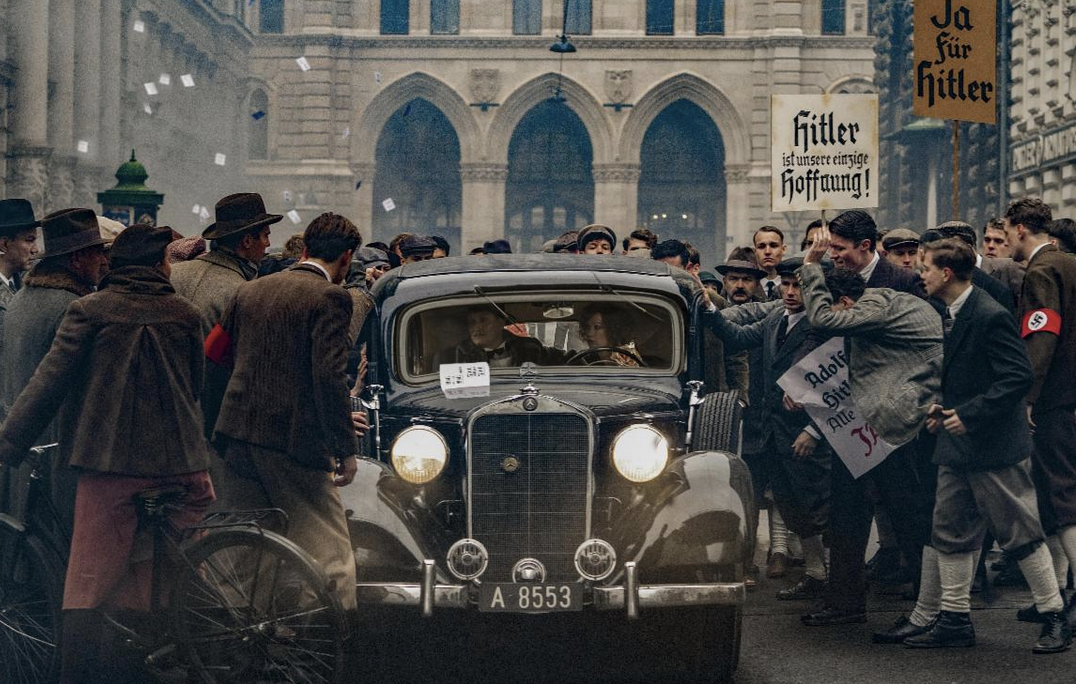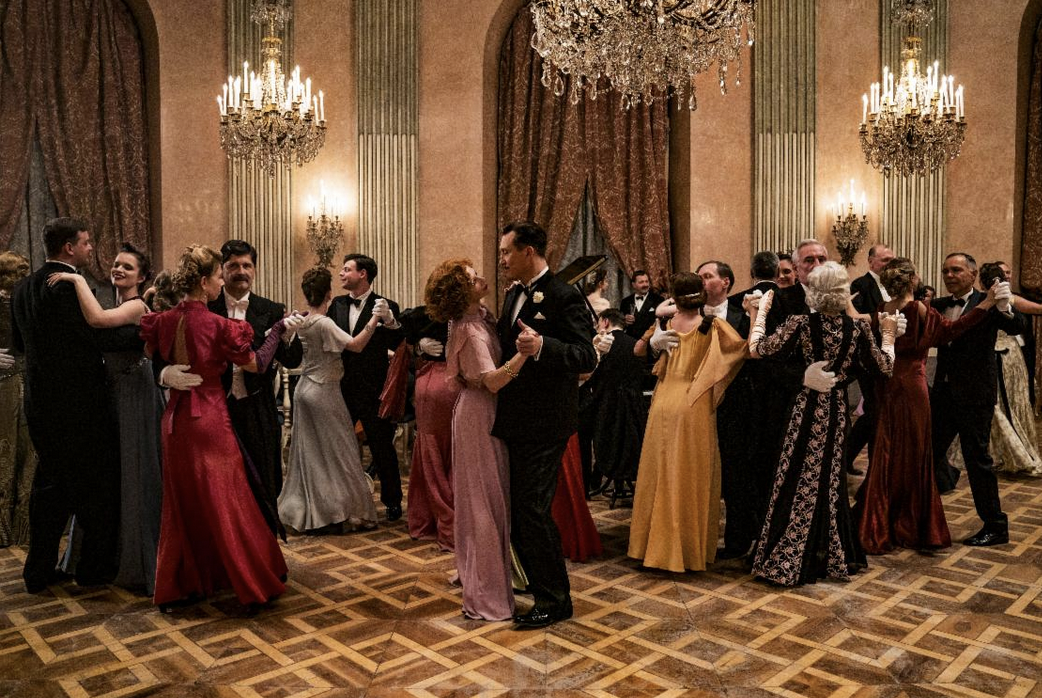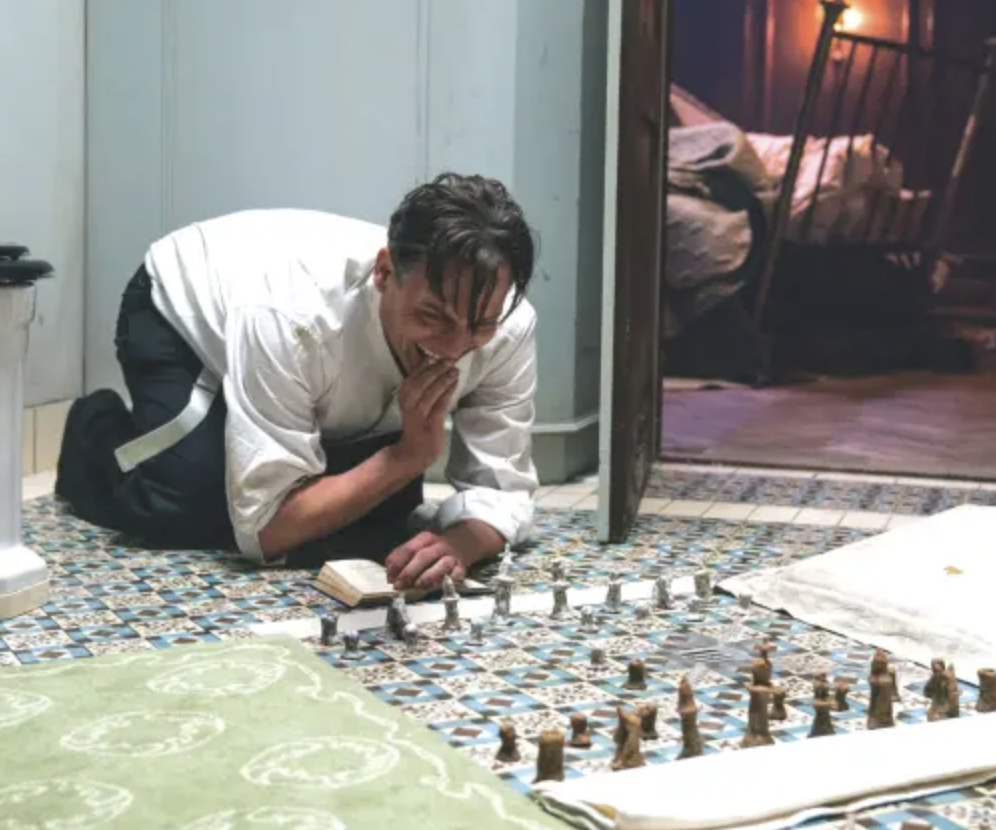A Broken Mind ‘Chess Story’
By Sue Weston and Susan Rosenbluth – Two Sues On The Aisle
Chess Story is based on a novella by Stefan Zweig, an acclaimed Austrian-Jewish author who, escaped to the US and later moved to Brazil. Under the skillful direction of Philipp Stölzl, the movie displays a battle of wills as a Gestapo interrogator attempts to extract information using psychological rather than physical measures.
The movie begins in the mid-1940s as the protagonist, Dr. Josef Bartok traveling under the name “Max,” (Oliver Masucci) prepares to sail from Europe to the US, meeting his wife Anna (Birgit Minichmayr) at customs. Aboard the ship, Bartok flashes back to memories from Vienna, Austria 1938.
There is chaos in the street as Jacob and Anna attend a lavish ball, laughing with friends, some of who are Jewish, dismissing concerns about what will happen with Austria under German rule. “As long as Vienna keeps dancing, the world can’t end.” When Bartok is tipped off that the Nazis will be looking for him, he rushes to his office to burn papers containing clients’ account numbers. Bartok, unable to destroy all the evidence before the Gestapo arrives, is arrested and brought in for interrogation.
Placed In Captivity
The Gestapo wants to seize the assets his firm is managing. When Bartok refuses to provide the information, he is isolated, and locked in a room in a luxury hotel. Although he can hear screams as other prisoners are tortured, he is treated with civility. For years, Bartok is deprived of contact with the world. A silent guard delivers his meager meals. He is not allowed books, newspapers, music, or radio. He collects cigarettes to measure the passage of time, storing them in a drawer.
Despite his rumpled appearance, Bartok behaves like a gentleman, stoically refusing to disclose any information about his client’s accounts. To pass the time he trains a fly. Fortunately, he is able to steal a book on chess that he memorizes. He creates a board and pieces, immersing himself in the game. When the book is discovered, and the chess pieces are destroyed, he is forced to play chess in his mind. Chess becomes his obsession, his last link to humanity.
Mental Decline
The movie intentionally jumbles the timeline, jumping between a voyage to America and captivity in Vienna. These leaps forward and backward in time are disquieting, mixing memories with reality. The confused state of Bartok’s mind is evident when he bangs frantically on the cabin door begging to be released, thinking he is still a prisoner in the Vienna hotel.
Bartok’s mental decline is disturbing to watch. This is a tribute to Masucci’s strong performance. As a haughty, arrogant aristocrat he is easy to dislike. Throughout the movie, he visibly deteriorates, shrinking to become a shell of his former self, losing everything, including his sanity. In the final scene, Bartok is in a psychiatric hospital with his wife, who he does not appear to recognize is reading him an excerpt from Homer’s Odyssey. We are left wondering what parts of the voyage really happened.
Relevance
Chess Story is a reminder not to be lulled by the appearance of security or affluence. We witness how rapidly civilization can deteriorate, and how easily people can resort to senseless torture. It also depicts the fragility of the mind and the effect of isolation.
*********
Two Sues on the Aisle bases its ratings on how many challahs (1-5) it pays to buy (rather than make) in order to see the play, show, film, or exhibit being reviewed.
Chess Story received three challahs
Run Time: 112 minutes – Language: German with English subtitles









